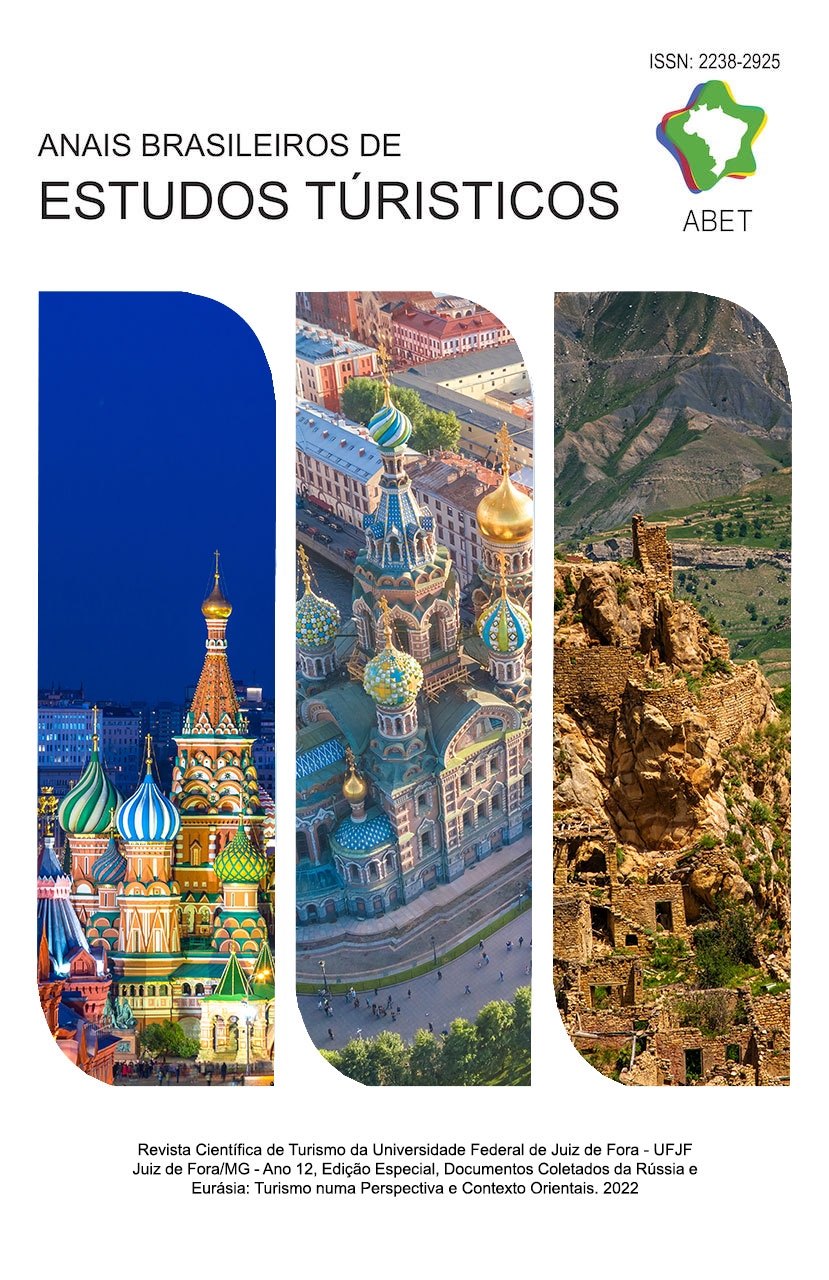Events as Platforms and Networks for Tourism Development in Moscow, Russia
DOI:
https://doi.org/10.5281/zenodo.7145683Keywords:
Event tourism, Platforms, Networks, Re-enactment, MoscowAbstract
Events are used as strategic tools for tourism development in Moscow nowadays. They have thematic diversity and various scales. However, there is a need for a particular event strategy for active urban development, city image improvement, and tourism growth. The study focuses on Moscow 'event portfolio' and discusses events as platforms and networks for event growth and value creation. The research based on a case-study approach examines the evoluAtion of Moscow event tourism products and their conversion into a unique city platform appealing to both tourists and locals. Special attention is paid to Times and Epochs, the major historical re-enactment festival in Russia and one of the biggest in the world which started in 2011 and became very successful. The festival organizers have formed a comprehensive platform generating cultural events, media projects, and other activities to create new meaningful values based on direct communication and event involvement of the re-enactment community network, tourists and locals for further tourism development.
Downloads
Downloads
Published
How to Cite
Issue
Section
License
Copyright (c) 2022 Anais Brasileiros de Estudos Turísticos

This work is licensed under a Creative Commons Attribution 4.0 International License.
This journal provides immediate open access to its content, following the principle that providing free scientific knowledge to the public provides greater democratization of world knowledge.
Authors must agree to the following terms relating to copyrights:
(a) Authors keep all copyright and grant the to the journal the right of first publication, with the work simultaneously licensed under the Creative Commons Attribution License that allowing job sharing with recognition of authorship of the work and initial publication in this journal.
(b) Authors are allowed to assume additional contracts separately, for non-exclusive distribution of the version of the work published in this journal (e.g. publish in institutional repository or book chapter), with recognition of authorship and initial publication in this magazine.
(c) Authors are allowed and are encouraged to publish and distribute their work online (e.g. in institutional repositories or on your personal page) since they do not do this before or during the editorial process, as this can generate productive interchange, as well as increase the impact and citation of work aired. (See Effect of Free Access).















